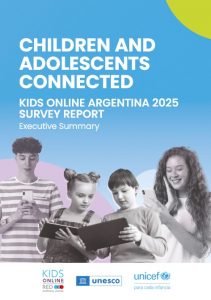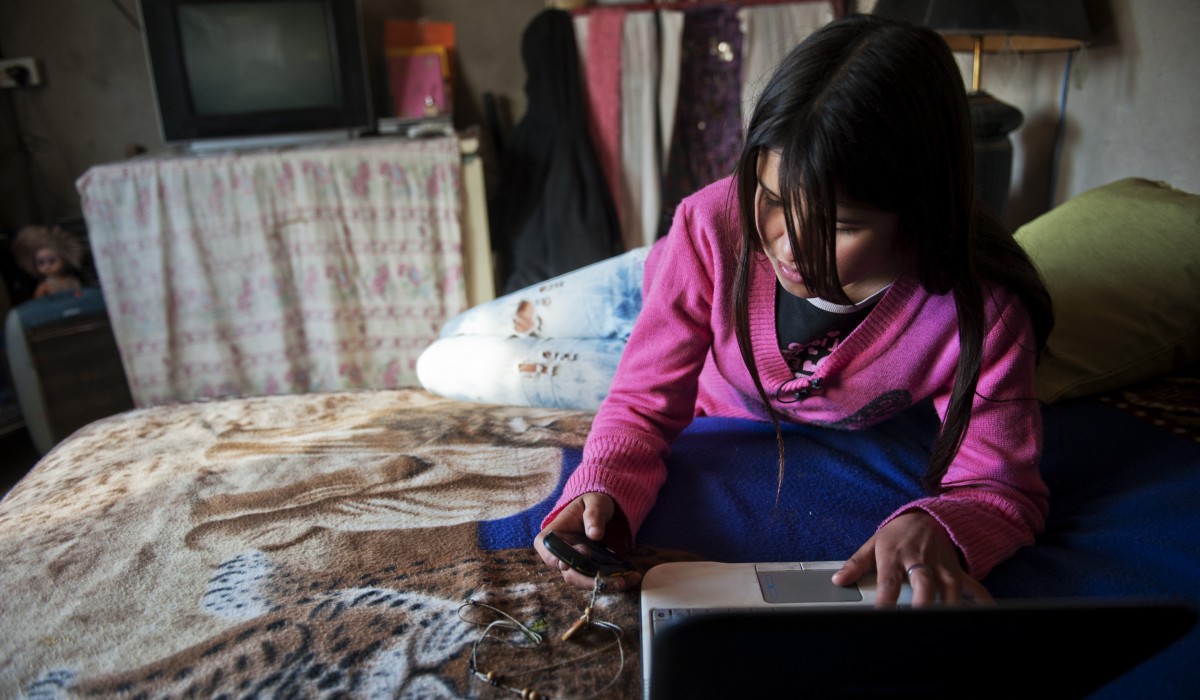 The 2025 Kids Online Argentina research shows that internet use among children is now a normal part of daily life:
The 2025 Kids Online Argentina research shows that internet use among children is now a normal part of daily life:
- Internet access is almost universal, with smartphones as the main connection point, and many children going online from a young age—often before age ten.
- Devices and connectivity vary: smart TVs are common, but computers are less available, especially in lower-income households.
- Digital skills are strong for everyday tasks, such as installing apps, managing contacts, saving content, and adjusting privacy settings. Many children also know how to block or report unwanted interactions.
- Advanced skills like evaluating online information critically or making secure online payments are less developed, with gender differences in confidence and experience.
- Online safety: most children feel able to protect their personal information and navigate social media responsibly, though media literacy skills are uneven.
These findings highlight the importance of strengthening children’s critical digital skills while ensuring equitable access to a variety of devices, so their online engagement is both safe and empowering.
Watch Sonia Livingstone’s Keynote at the launch
Methodology
The research was carried out between October and December 2024 in a nationally representative sample of primary and secondary schools in urban areas with populations over 50,000. It included almost 6,000 children aged 9–17, attending both public and private schools. The study followed the Global Kids Online methodology, adapted to the Argentine context, and was supported by a national council of experts in education, health, and digital rights.
Earlier Study (2016)
Argentina first joined Global Kids Online in 2016 through a partnership between UNICEF Argentina, the Ministry of Education, and research teams at Mori and Ipsos. That survey, conducted between August 2015 and May 2016, was the country’s first large-scale, nationally representative study of children’s online access, skills, opportunities, and risks. It provided a baseline for policy and practice and informed the design of the 2025 update.
Further materials from this study:
Working on knowledge exchange and impact
Recognising online hurtful behaviour among peers








